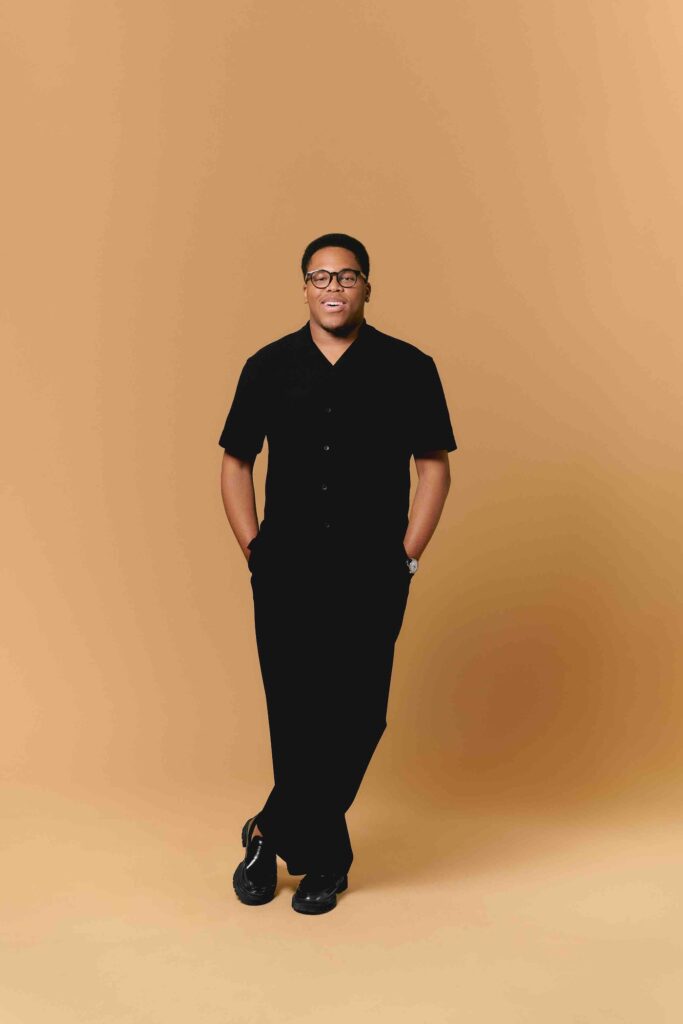Combining a Gift for Melody With a Deep Soulfulness, Isaiah J. Thompson Focuses on the Spiritual
His new album, ‘The Book of Isaiah: Modern Jazz Ministry,’ is a collection of original work that is highly influenced by traditional Black sacred music.

Isaiah J. Thompson
‘The Book of Isaiah: Modern Jazz Ministry’
Mack Avenue
As a guy who can’t play the piano but who thinks about the instrument a lot — check out my latest book, “Nights at the Red Steinway,” if you don’t believe me — I find that there are two distinct subsets of contemporary jazz pianists who occasionally interact with each other.
One is a lineage of highly melodic players, such as Bill Charlap, Ted Rosenthal, and Emmet Cohen, who focus on the Great American Songbook and on making old songs sound new. The other is a group of highly soulful players, including Cyrus Chestnut and Eric Reed, whose music is deeply rooted in the traditions of the African American church.
If there’s one player who belongs in both of these groups, it would have to be Isaiah J. Thompson, who has just released his fifth complete album, “The Book of Isaiah: Modern Jazz Ministry.” He launched this release recently at Dizzy’s.
At 28, Mr. Thompson is a remarkable player who combines the one group’s gift for melody with the other group’s deep spirituality. Both impulses come to the fore in “Ministry,” which, as the title suggests, is a collection of original work that is highly influenced by traditional Black sacred music. The set may be said to be a collaboration with Mr. Chestnut, who serves as the album’s producer — though, regrettably, he doesn’t join Mr. Isaiah for a four-handed two-keyboard excursion.
The album is basically a quartet project, with Mr. Thompson being joined by tenor saxophone Julian Lee, bassist Marty Jaffe, and drummer Miguel Russell, along with three guest stars on vocals and other accouterments.

“Ministry” starts with something perhaps vaguely off-topic: a nod to African American history, as couched in the title, “The Cakewalk Dilemma.” This is a bluesy riff, equal parts Horace Silver and Thelonious Monk at doubletime, in a general style that some describe as “soul jazz.” Others might call it hard bop, though there’s not anything necessarily hard about it.
The more overtly spiritual music kicks in with the second track, featuring Vuyo Sotashe, a fine young singer from South Africa who is frequently heard at Jazz at Lincoln Center but still has yet to make an album of his own. “The Highest Calling” is a boppish tune with a text that’s more like a chant or an invocation than a traditional lyric.
Mr. Sotashe has a sweet, clear baritone and knows how to convincingly suggest devotion at the deepest level, while Mr. Lee’s tenor, in his solo, offers an even more impassioned prayer — repeating phrases in the manner inspired by the religious works of John Coltrane and Pharoah Sanders 60 years ago. The tune is subtitled “(Asé, Yahweh),” which is apparently Mr. Thompson’s way of paying reverence to the faith-based traditions of both the African diaspora and the Hebrew Old Testament.
Mr. Sotashe sings on another incantory piece, “The Feeling of Freedom,” which is a swinging and upbeat prayer for social justice and mutual tolerance. He’s also heard on Mr. Thompson’s setting of “Our Father Who Art in Heaven (The Lord’s Prayer),” a more boppish interpretation of a text famously reset by Duke Ellington, Sarah Vaughan, and others.
The album ends with a larger-than-life, almost theatrical work titled ‘The Prophet.” It involves the entire company, as well as guest percussionist Herlin Riley and the leader’s wife, Kaitlin Obien-Thompson. Mr. Riley takes the lead vocal, and the others chant behind him, clapping in 3/4 time in a way that suggests what the climactic passages of “A Love Supreme” might sound like if scored for an entire choir.
At Dizzy’s, Mr. Thompson played a lovely and heartfelt solo number, Duke Ellington’s most famous sacred work, a melody known both as “Come Sunday,” from “Black, Brown and Beige,” and “David Danced,” from the first “Concert of Sacred Music.” By the end of the song, the mood was uptempo and jubilant; David was definitely dancing.
The album contains one other solo work by the leader, titled, “A Prayer.” This profoundly spiritual piece doesn’t find Mr. Thompson preaching to a congregation but instead praying quietly and piously to himself in a voice that only God can hear, thus proving the Duke’s dictum: “Every man prays in his own language, and there is no language that God does not understand.”

